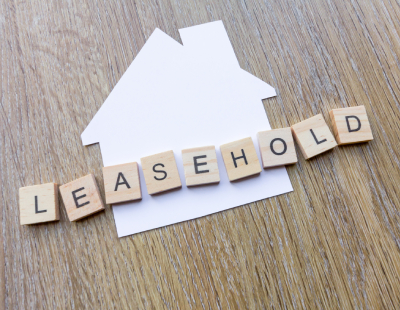
Those investing in newly-built leasehold flats, marketed as ‘virtual freehold’ properties with 999-year leases, are in danger of losing their capital investment, it has been claimed.
The term ‘virtual freehold’ implies flat owners do not need to be concerned when buying a leasehold property, as the long lease should protect their capital investment indefinitely. But Louie Burns, managing director of leasehold enfranchisement specialists, Leasehold Solutions, argues that the reality is that investing in a ‘virtual freehold’ property can become “a real nightmare”.
When people invest in leasehold property they are required to pay ground rent to the freeholder, who retains ownership of the land on which the property is built. However, Burns believes that the need to pay ground rent and service charges could seriously affect the property owner’s ability to sell the property in the future.
Burns said: “With so-called ‘virtual freeholds’ offering reassuringly long leases, it often seems like the owner will have nothing to worry about, compared with conventional leases, which often only last between 99 and 125 years, and will need to be extended in the future. However, with ground rent schedules that double every 10 or 25 years, the danger is that such properties can become unsaleable very quickly. Purchasing the freehold also becomes very expensive, as the valuation includes compensation to the freeholder for loss of future ground rent – in this case 999 years of future income.”
“Flat owners are often unaware of the effects of these ground rent schedules, as the clauses are buried in the small print of their leases and are regularly missed by their solicitors,” he added.
Burns also urged solicitors “to be very careful”, because if they do not clearly inform their clients about the real implications of such clauses, flat owners may have a valid claim against them for “professional negligence”.
Developers generally sell the freeholds of their buildings to professional ground rent investors before building works have even started. These investors want to make as much profit as possible from the freehold, so they often request certain clauses be included in the leases before they invest, according to Burns.
She continued: “The figures involved may start small, but they grow exponentially over time. We recently enabled a group of flat owners in Islington [in London] to buy the freehold of their newly built apartment block. The ground rent clause was £250 a year, doubling every 25 years for 999 years. We calculated the ground rent due for the final 25 years of the lease per flat was set to reach £68,719,476,736,000!”
The leasehold enfranchisement specialist believes that the only real way to bring lasting change to what she deemed to be a “hugely flawed leasehold system” is to change the legislation that surrounds it.









.png)










Join the conversation
Jump to latest comment and add your reply
So essentially leasehold properties make a very good investment - for the freeholder?
There was a time when block builders threw freeholds in the bin as worthless. Sometimes they set up a management company to run the flats as a simple benefit for the tenants and the the freehold went to the management company. Those were the days. I suspect computing power is the true villain in that it enabled freeholders to make and service small charges on a grand scale.
The biggest problem for x-hold now is politicians who are ignorant but have ideas which must be great because they know it all. The current mess with leaseholders' enfranchisement for leasing has blown up in a huge bomb blast. Tenenants are now liable for major structural faults. Historically they could have just left the building loosing only a few pounds and left the building to fall down.
Please login to comment